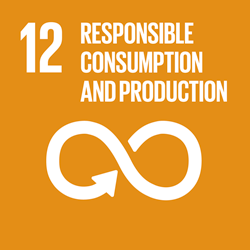Technological watch
Polymers Use as Mulch Films in Agriculture—A Review of History, Problems and Current Trends
The application of mulch films for preserving soil moisture and preventing weed growth has been a part of agricultural practice for decades. Different materials have been used as mulch films, but polyethylene plastic has been considered most effective due to its excellent mechanical strength, low cost and ability to act as a barrier for sunlight and water. However, its use carries a risk of plastic pollution and health hazards, hence new laws have been passed to replace it completely with other materials over the next few years. Research to find out about new biodegradable polymers for this purpose has gained impetus in the past few years, driven by regulations and the United Nations Organization’s Sustainable Development Goals. The primary requisite for these polymers is biodegradability under natural climatic conditions without the production of any toxic residual compounds. Therefore, biodegradable polymers developed from fossil fuels, microorganisms, animals and plants are viable options for using as mulching material. However, the solution is not as simple since each polymer has different mechanical properties and a compromise has to be made in terms of strength, cost and biodegradability of the polymer for its use as mulch film. This review discusses the history of mulching materials, the gradual evolution in the choice of materials, the process of biodegradation of mulch films, the regulations passed regarding material to be used, types of polymers that can be explored as potential mulch films and the future prospects in the area.
Publication date: 22/11/2022
Author: Zinnia Mansoor
Reference: doi: 10.3390/polym14235062






